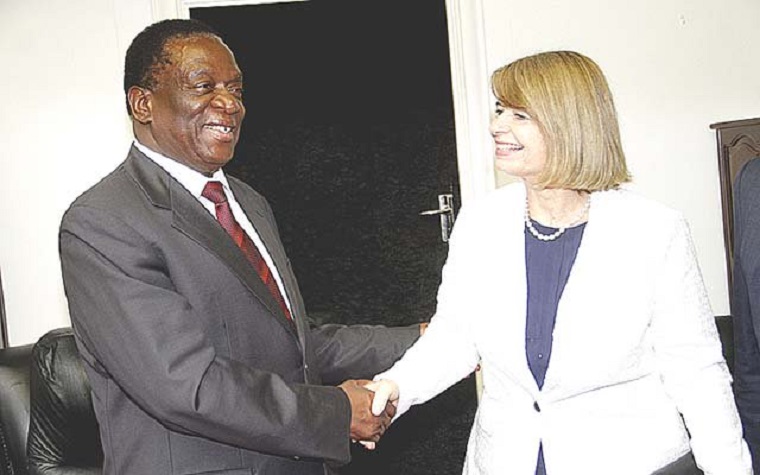Zimbabwe President Emmerson Mnangagwa is a pragmatist, or he should be. Which makes the 100-day plan of action so out of line because it is a mammoth task to bring back any semblance of normalcy to the country’s economy.
It may be that ED, as his followers love to call him, loves the command model so much he was blind to the reality that it will be impossible to make significant strides in addressing the shortcomings hobbling Zimbabwe’s economy until after the election, if they are free and fair as the international community has made clear.
As a political gimmick, he opened himself up to ridicule by opponents and civil society alike. So, was he selling hope? Perhaps.
Mnangagwa inherited a receding economy with foreign investors fleeing in numbers. A banknote shortage, widening fiscal deficit, the not so splendid isolation from the global economy and policies seen as unfriendly to investors are some of the problems that have faced the new man at Munhumutapa Building.
But 100 days later and counting, bank queues remain, the black market is in full swing, prices remain high and companies are still struggling to make offshore payments.
So what did he achieve in the first 100 days? Not much actually, but here is a few items of note.
The reform agenda and reengagement with the international community was dead with former president Robert Mugabe in charge. When he was appointed vice president after the ouster of Joice Mujuru in 2014, Mnangagwa and key ally, Finance Minister Patrick Chinamasa began a raft of reforms.
Zimbabwe resumed dialogue with international financiers, among them the IMF, World Bank and the AfDB. The IMF was so pleased it announced it might resume aid for the first time in nearly two decades. Even the European Union resumed budgetary aid, which had been suspended for years.
The Lima Plan to repay outstanding debt was in the toilet.
But the return of Chinamasa to the finance portfolio after seven weeks as a cyber security minister saw the resumption of reengagement with foreign funders. His budget was back on point: reducing the government wage bill, tightening the government purse strings and finally that monkey on his back, fixing the indigenisation law.
The key policy change, which is expected to be signed into law in the next few weeks, would signal that Mnangagwa has taken a long term and pragmatic view to business but the 49/51 policy will only be confined to diamond and platinum mining only.
From his inauguration, Mnangagwa has pronounced an eagerness to fight endemic corruption and impunity that characterised former president Robert Mugabe’s rule of 37 years to restore confidence in the public sector. In his first State Of the Nation address, Mnangagwa vowed to punish corruption that stifled political freedom and economic growth under his predecessor.
Continued next page
(219 VIEWS)
